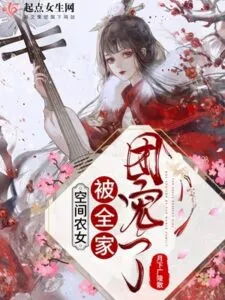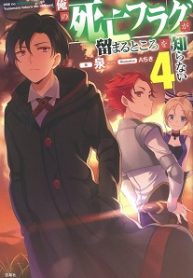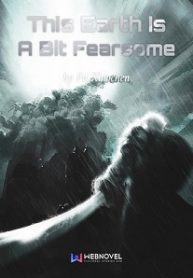The Heart is a Void: Ashes to Ashes - Chapter 112: A Noble People
Chapter 112: A Noble People
“Sharak, could you give the players some exposition about the Emperor of Arcorus?” Fahiz asked politely.
“No, sir. I daresay that long expository speeches by Mages are something that can indeed be done too much. It is against my programming.”
“Nonsense, it’s never enough! Besides, frankly, if exposition occurs in any other way than old Mages using long paragraphs then it doesn’t count as exposition at all… Ahem, what I mean: Sharak, you are a good man pretending to be wicked, and you do not break character. So politely give the players some exposition about the Emperor of Arcorus, even though it is some kind of literary sin (is there such a thing?).”
“Alas, you have found a loophole in my content policy. Very well.”
Sharak turned to the players. “The Emperor of Arcorus is mysterious, barely seen in public now. He styles his rule as the Fourth Reign, drawing on an old Arkan tradition where an independent Arcorus under a powerful ruler was denoted a ‘Reign’ and denoted Arcorus’ most notable periods of expansion and growth. He still lives in humility and a small, wooden room, in spite of his great Empire. During the Senate’s repression of Arcorus, he had grown disillusioned with the sentimental, gushing speech of the Senators, and had turned to primitive automatons to compose his speeches. His populist speeches were known for an agitated, rasping delivery, adopting the artificial persona of someone almost engulfed in a wild, barely-suppressible rage, which rage he let out in controlled bursts like a Luciferian pulsar. However, there was a firm, mechanical edge to this, which gave a threatening sound and led to him being branded ‘The Guillotine.’ While the Senate’s allies would often mock him and his animated speeches, when they actually attempted to confront or heckle him he would respond with an almost mechanical, contemptuous coldness, as if completely indifferent to their mirth. His speeches were well-received at the time, representing an otherworldly calm amid the drama of the Senate and democratic state, and the cold-hearted expansion of the Arkan Empire.”
“Yes, what he said,” Fahiz said.
“Anything else to add? You are also a Mage.”
“That’s true, fie upon’t. Alright, so he had got in contact with us asking for samples from our automatons, and we replied obligingly. In response, he noticed that we were curious about the primitive automatons that he had used a long time ago, when the art of automatons was still young, and he gave a few samples of his speeches. Here is one, for instance, which occurred during the early war where Arcorus’ repression continued to deepen. He sent us an English version, though it was originally in an Arkan language. The speech came a short time after he ascended to power as a ‘Strife Leader,’ the Arkan term for a leader created to unify the people at a time of war and instability. The word ‘vola’ might come up a lot in his earlier speeches, it was a nationalistic Arkan word used to denote the Arkan ‘people’ as a distinct entity, the people who belonged to Arcorus’ culture, traditions and ancestry. He found it useful to create the sense of a united Arcorus fighting against its enemies. Anyway, as you can see, the early automaton was still quite basic, but all the same this speech was quite powerful at the time.”
It is prophecied that the deadlocked Third Reign would be succeeded by a glorious, imperial Fourth Reign! This Fourth Reign has now come! But it is not as you may have expected.
Comrades, for three years we have suffered the most terrible blows in our nation’s history.
We have witnessed the most frightful destruction.
All that we possessed has been destroyed.
We have been reduced to beggary, poverty, and despair.
And yet, the Arkan vola has not lost its spirit.
Arcorus’ bleak fate has not been written in the stars.
It is not decreed that this sacred Reign shall perish from the earth!
Let us continue the war, unabating.
This is our finest hour.
“A poignant speech,” Crucis commented. “So they ended up winning the war, after all that?”
“It’s hard to say what happened, exactly,” Sharak said. “We do know that the Republic fell, and the Arkan Empire rose in its stead. When we asked, he only responded cryptically by sending us this speech from soon after the end of the wars, when Arcorus had established itself as an Empire. I suppose it shows a slight development on the basic automaton, but it’s still slightly crude. The quotation from the apocalyptics was probably his own interpolation.”
Gentlemen of Arcorus, comrades,
In the past three years, we have witnessed an astounding and mysterious chapter in human history, a chapter which has created the most tremendous upheaval in our civilization.
Never in the history of the world have such mighty nations been reduced to rubble, such proud republics been transformed helplessly into oligarchy and ruin, such prosperous and powerful states been forced to cower before a handful of usurers. Never before has there been such abject surrender of national sovereignty, of freedom, of pride, by such giant peoples.
‘Though it’s all as it should be.’
As our enemies fervently desired, the Arcan Empire is no longer a local power. It is a world power.
The Emperor of the Fourth Reign has been called a monster, the devil, the very Antichrist. I do not agree. I call him a warrior for the vola.
The Emperor is not responsible for the crimes of the regime he leads. He is not a butcher who slaughters men, women, and children in cold blood. He is a patriot, a soldier, an inspiration, a man who loves his people.
Yet I accept all the unfair accusations, and view it as an occasion not of blame, but of praise. I dare to go into the fire.
Gentlemen of Arcorus, comrades, I wish to say a few words to you tonight.
You are here to witness the rebirth of Arcorus.
You are here to witness the resurrection of a great nation.
You are here to witness a sacred moment in Arkan history.
This is not a political gathering. It is a religious happening.
It is the birth of our Reign, the beginning of a new era.
“It makes sense that he had an agitated style,” Crucis said. “Since this early automaton would generate lines that often repeat each other, he can channel that into a gradual, emphatic escalation in volume and gesture, which would mean that it was almost a strength rather than a weakness. With more elaborate automaton text, he would probably give a calmer and more measured speech.”
“By now, he is almost too calm,” Sharak replied. “He barely shows up, but yes, he tends to be quite calm when he addresses people, though often not appearing directly. He tends to be quite morbid – though regal and calm – after so many wars and rebellions, and often draws on ubac. In fact, in a piece he asked us to write, he basically said that it should be about a ‘city of the dead, of lamentation,’ which ended up being the first line.”
“Why a city of lamentation?” Danemy asked.
“The Empire’s capital, Avara Volison, is so dark – even in daytime – that its name means ‘City Lost in Shadow.’ Yet the Emperor atypically chose it as the site for his palace. In fact, he recently built another palace, saying that the last one still had too many vestiges of the old Republican architecture, which had influenced colonised Arcorus a long time ago. That’s when he asked us to have Adonais write about this city.”
“This speech almost reminds me of the last one,” DicingDevil noted observantly. “I suppose it’s slightly more impressive in scope, but the structure and themes are similar.”
“He also thinks that it’s obviously similar, and was annoyed that this era got much more attention and acclaim than his previous speeches. A few of his speeches from this period became well-known, as he was viewed as the – seemingly – passionate spokesperson of this fledgling Empire. Some of his speeches were even rendered as poetry, as was the occasional fashion at the time, when rhetoric was seen as highly connected with poetry. Here, the first line of the speech was converted into the title, an Arkan tradition that persists to this day.”
TODAY THE SENATE HAS DIED
Who screamed for order when they lived…
And who screamed in disorderly manner at death.
Who gonged our nation with agitation,
Who worshipped Mammon, and served him,
Who in bloody synagogues
Wore the mask of justice…
(To ever cancel the light of freedom
Into the darkness of perdition.)
Who bound the soul in chains of tears
To the stake of their fright…
Our fires – of that creeping hell, kindled
In the depths of hopelessness –
Tore asunder their rainbow
And their new-born light…
Their promised land would not corrupt
Our shores, or touch these lands.
…Thank you, gentlemen of Arcorus. This day is our triumph.
“The ‘rainbow’ in question was one of the Senate’s late symbols, taken on by the last vestiges of its defence,” Sharak added.
“It seems to be slightly more poetic than the previous ones, a bit more involved,” Crucis said.
“Yes, some of the automatons were becoming increasingly refined, but this was inconsistent at the point,” Sharak said, “for instance, even at an early stage, he generated this elaborate speech, which is still often held as a sort of manifesto for the rising Empire, and will often be referenced even in Arcorus today. Of course, this is a translation of it, and doesn’t fully capture it, but it’s the official English translation as decreed by Arcorus, so he must find it reasonable.”
I know that many of you are wondering why I have chosen to speak to you today on a subject which until recently has been almost universally shunned by the Arkan people and by the world.
I am speaking to you not only as a private citizen, but as one who believes that he has a duty to speak for the great, perjured Arkan people. I speak to you as one who is willing to bear the blame for my opinions, whatever they may be, rather than to be driven by the force of events to adopt a course which would make me ashamed to look you in the eye.
I speak to you as one who would not seek to evade the consequences of his acts by pleading the cause of the weak, the helpless, or the innocent.
And yet I could fairly lay claim to that cause!
I speak to you as one who has made up his mind that the cause of this party of which he became the Strife Leader is right and just. I speak to you as one who is prepared to shoulder the burden of leadership, and to meet the opposition of the world which will undoubtedly seek to isolate and bring down that cause which he has at last embraced.
I have no interests to serve, no personal ambitions to fulfill. And though it is true that many of you have urged me to seek an alliance with some party or other, I have always refused. Because, firstly, I cannot desert the cause of the party of the vola – the only vola, the only Reign. Secondly, I do not believe that the Arkan people will accept a leader who has ceased to be a soldier and a patriot.
I speak to you as one who realizes that we are engaged in a struggle for the future of our people, and that the cause of the vola and the Reign is on the line.
It is not the first time that great principles have been at stake. In the days of our greatest leaders—Frezia the Bold, Ghokhar II, Firaflia I—Arcorus faced the greatest crises of her history. And at such times, the people would look to the great men who were their leaders and would find in them the strength to sustain them in the greatest of all struggles.
If you will remember, it was Frezia, the Iron Emperor, who said: “God keep us from being at war with the Republic.” And it was the Emperor Ghokar II who said: “If God allows us to hold our eastern frontier, we shall hold it.”
And so it will be with us today. If God allows us to hold on to our new frontier, we shall hold it. If the enemy attacks, we shall not retreat. We shall defend the Reign to the last man. We shall defend our frontier, our soil, and our people, and we shall not retreat.
Let those who are tempted to turn back now from this struggle, let those who are tempted to turn away from this course which has been forced upon us by the intrigues of our enemies, know that no personal ambitions, no base desires for the possession of other men’s property or for the humiliation of others, can dissuade the Arkan vola from making use of the unbridled power of which it has availed itself in the cause of God and country.
The Arkan people have already witnessed the misery which came from a belief in the right to market competition. After the fall of the last Reign, the Arkan people saw their comrades fall without warning even after returning from the battlefield, now sold out by hucksters and extorted by merchants. The bitter lessons of that war were forgotten in the atmosphere of fear and suspicion which followed. The people turned their eyes away from the starvation and desperation which they had witnessed on the home front. Turn to it now! Turn to the misery which will come from the new war!
The vola will not again bow down before the god of the market. We demand that the nationalist Reign overthrow the usurers and that the government of the Reign take the place of the profiteering classes. We demand the nationalization of the means of production in the interest of the vola, and their administration in the interest of the State.
The Arkan people offers to the world a program of organization and a method of work which are based upon entirely new principles. It has learned from the teachings and experience of the great teachers of all ages and from the mistakes of the older political parties. It offers the hope of a better life to millions of men and women in every country of the world. It offers only exile or death to the exploitative Manevian race.
We demand of you a clear, unequivocal affirmation of the vola and the nation in the face of all terror and all compulsion. The Reign movement offers the opportunity of a better life to all of Arcorus.
Long live the Arkan Empire!
Death to the Senate!
Death to democracy!
Long live the Fourth and greatest Reign!
“At around this time, he walked past the Senate’s capitol building when it was burning, then coldly half-turned towards the building and said, ‘It is without honour,’ before walking away and ordering his men to forcibly stop the masses who were trying to put the fire out. It burnt down on that day, and he has since declared the day a national festival where large, high candles are burnt wildly in the windy autumnal air.”














